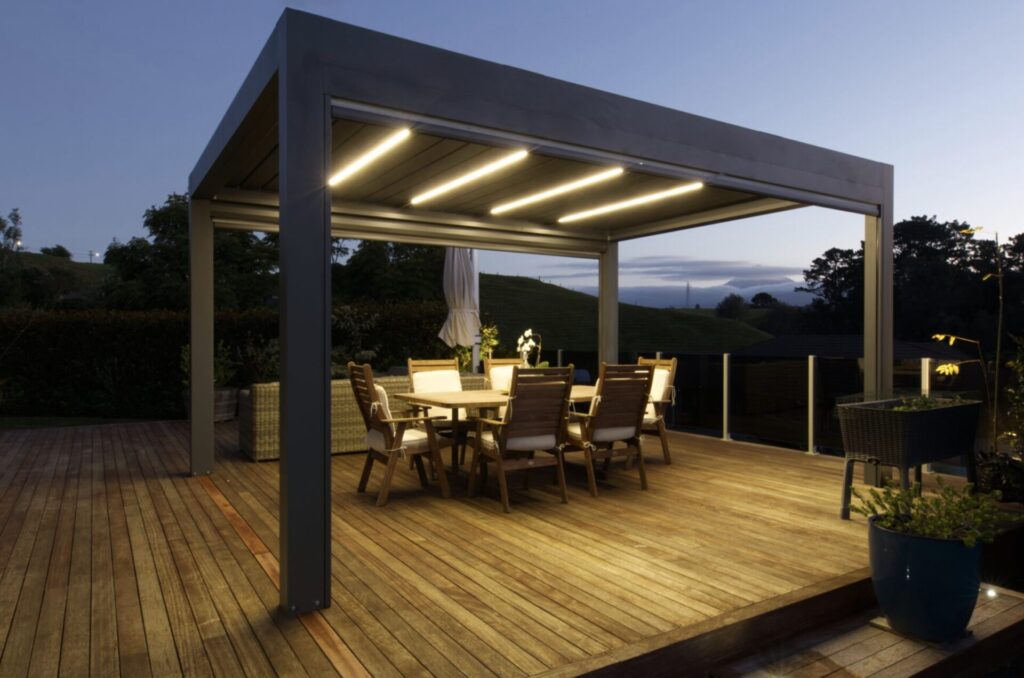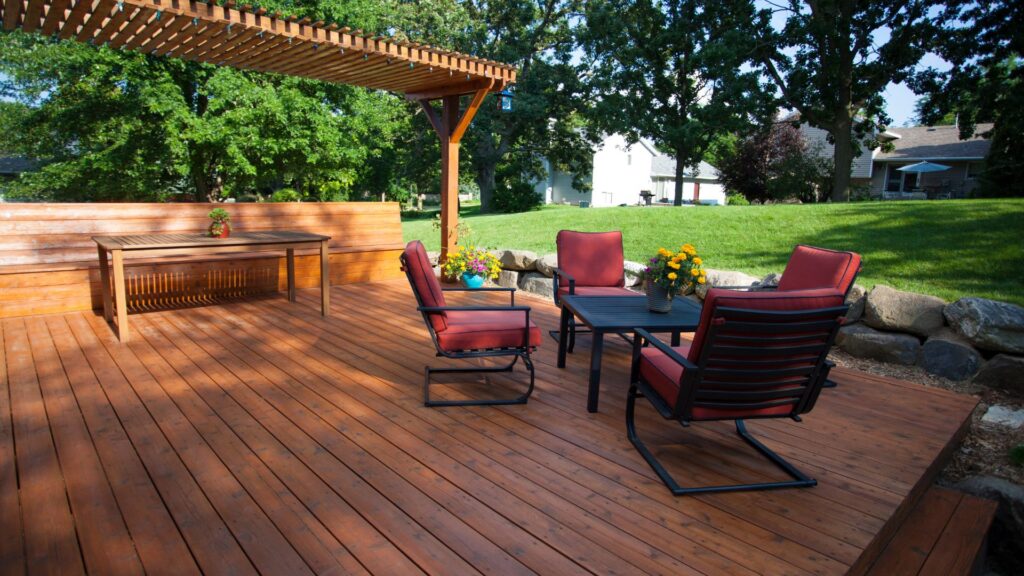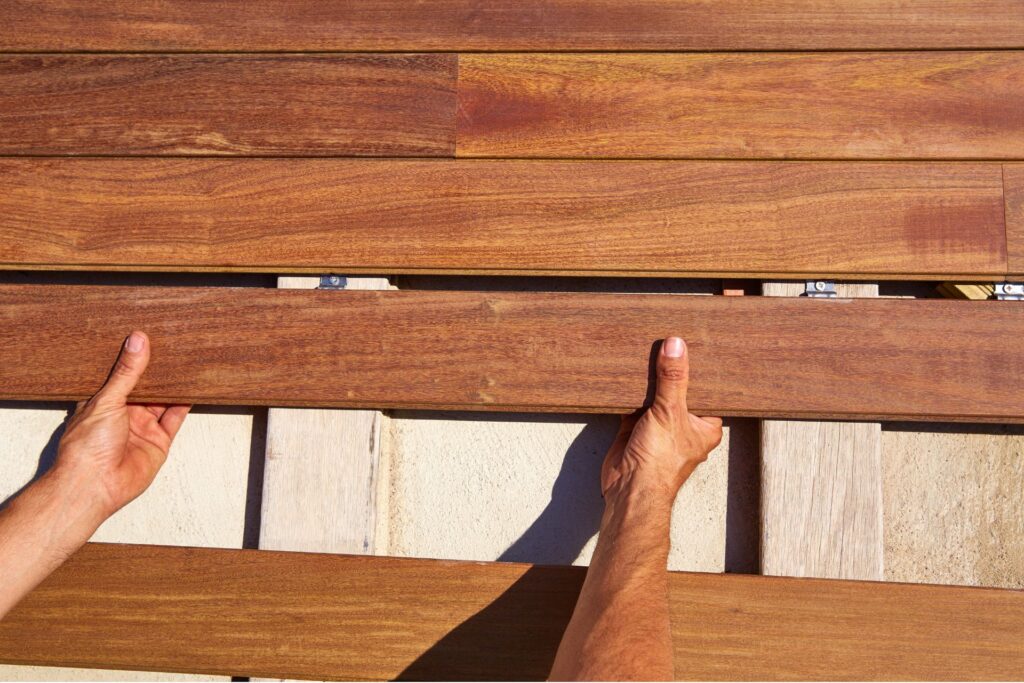Step into the enchanting realm of New Zealand, a land celebrated for its awe-inspiring landscapes and a climate as diverse as the cultural tapestry that weaves through its picturesque scenery. Immerse yourself in the vibrant outdoor living culture that defines the Kiwi way of life, where nature becomes an extension of your home. At the heart of this harmonious connection lies the quintessential Kiwi feature – decking.
Discover the art of seamlessly blending the indoors with the outdoors as we embark on a journey through the diverse world of decking in this all-encompassing guide. We’re here to be your trusted companion, offering a wealth of insights and expert advice that will empower you to make an informed decision, ensuring that your outdoor space becomes not just a backyard, but a haven that reflects your unique lifestyle and preferences.
A Guide to Different Types of Decking in New Zealand is:
A Guide to the Different Types of Decking in New Zealand is your comprehensive resource for navigating the diverse landscape of outdoor flooring options. Explore native timber choices like Kauri and Totara, discover imported options such as Kwila, and delve into the world of composite decking with brands like Trex and Futurewood.
Table of Contents
Timber Decking
Native Timber Options
- Kauri: Kauri, a native timber, boasts timeless elegance with its rich golden hues. Its inherent durability and resistance to decay make it a popular choice for decking in New Zealand.
- Totara: Another indigenous option, Totara, features natural oils that enhance its resistance against insects and decay. The warm, reddish-brown tones contribute to a sophisticated outdoor aesthetic.
- Rimu: Rimu, a classic choice, is known for its beautiful grain patterns and varying shades. Its medium density and workability make it a versatile option, creating decks that are both enduring and visually pleasing.
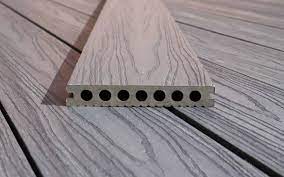
Imported Timber Options
- Kwila: Imported from Southeast Asia, Kwila is prized for its rich, reddish-brown color. Its robust nature and resistance to decay make it suitable for New Zealand’s varied climates.
- Vitex: Hailing from the Pacific Islands, Vitex is recognized for its durability and stability. With a light to medium brown hue, Vitex offers a visually appealing option for outdoor decking.
- Garapa: A South American hardwood, Garapa showcases a light golden color. Its natural resistance to decay and insects, coupled with minimal maintenance, makes it an attractive choice for New Zealand decks.
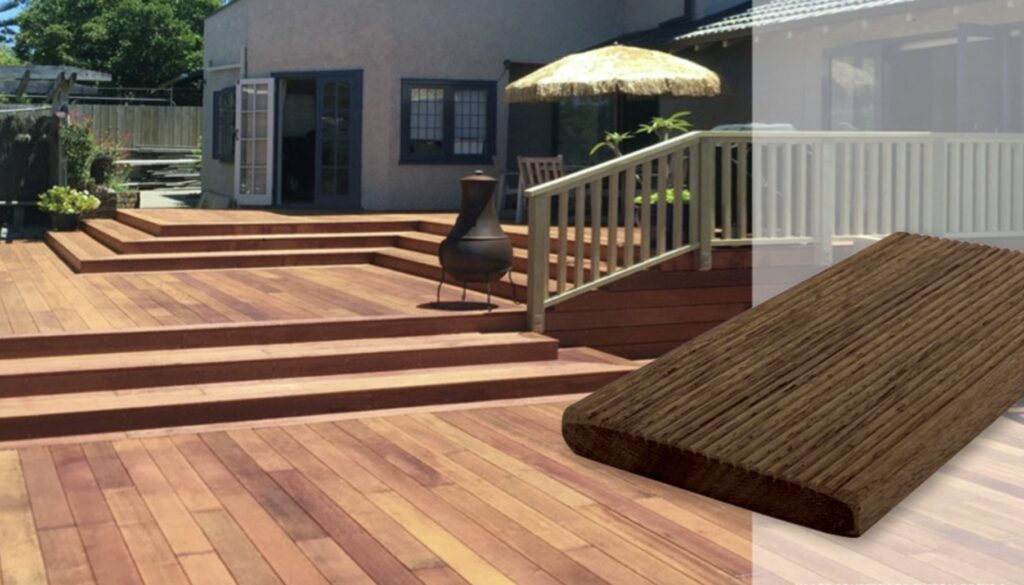
Pros and Cons of Timber Decking
- Durability and Longevity: Timber decks, whether native or imported, boast longevity and resilience. Regular maintenance, such as sealing and staining, significantly enhances their lifespan.
- Maintenance Requirements: While timber decking requires periodic maintenance, the process is relatively straightforward. Regular cleaning, sealing, and addressing minor repairs can keep your deck looking pristine.
- Aesthetic Appeal: The natural beauty of timber adds a warm and inviting ambiance to outdoor spaces. The wide range of colors and grains allows homeowners to choose a deck that complements their architectural style.
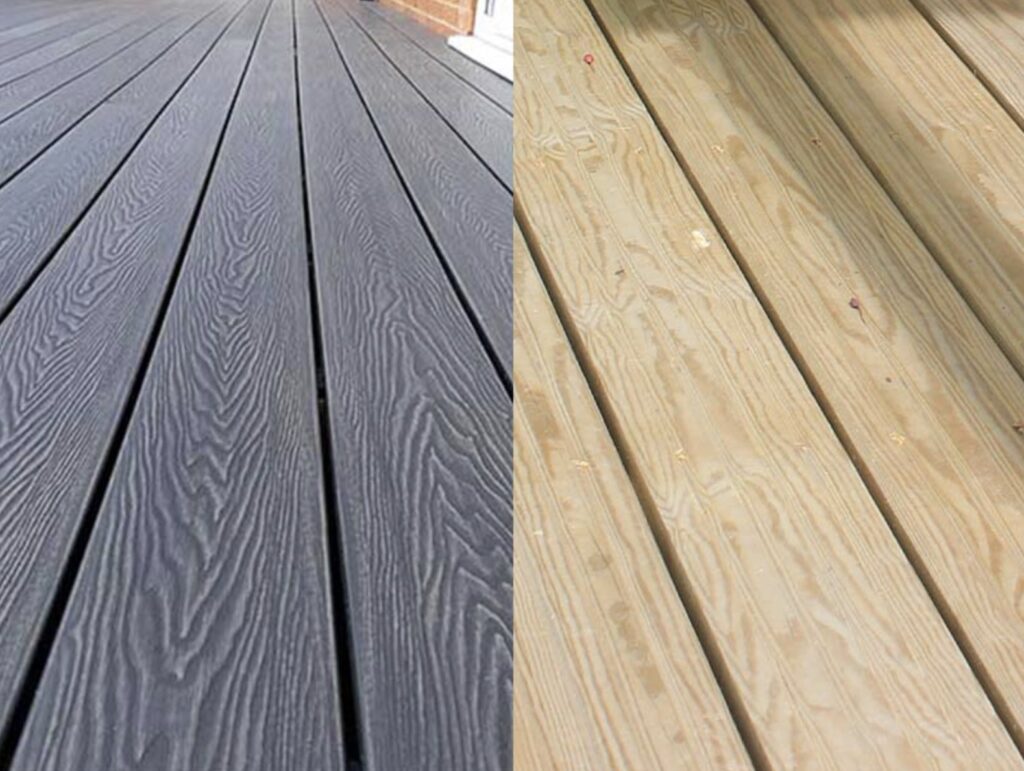
Composite Decking
Explanation of Composite Decking Materials
Composite decking, a versatile solution for outdoor spaces, ingeniously blends wood fibers with synthetic materials to yield a resilient and easy-to-maintain decking option. This innovative combination not only enhances durability but also ensures a longer lifespan, making it an eco-friendly choice for those seeking a sustainable outdoor decking solution. With its resistance to rot, insects, and fading, composite decking stands as a reliable and aesthetically pleasing alternative that requires minimal upkeep, offering homeowners both practicality and enduring visual appeal for their outdoor environments.
Popular Composite Decking Brands in New Zealand
- Trex: A global leader, Trex offers composite decking with a wood-grain appearance. Its resistance to fading, staining, and mold makes it a preferred choice for Kiwi homeowners.
- Futurewood: Providing an eco-friendly alternative, Futurewood offers composite decking made from recycled materials. Its range of colors and finishes ensures versatility in design.
- ModWood: Combining recycled plastics with sustainable timber, ModWood creates a composite decking solution that is both environmentally friendly and visually appealing.
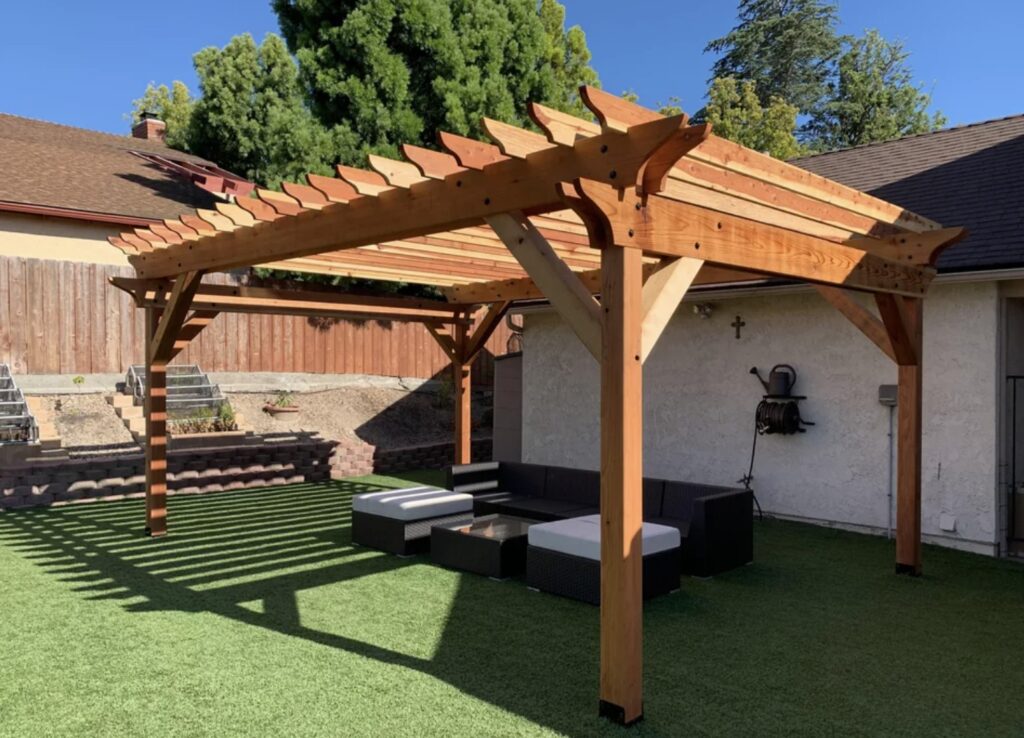
Advantages of Composite Decking
- Low Maintenance: Composite decking requires minimal maintenance, eliminating the need for staining or sealing. Regular cleaning with soap and water is generally sufficient to keep it in top condition.
- Environmentally Friendly: With the use of recycled materials, composite decking contributes to sustainability. It’s an eco-conscious choice for homeowners looking to reduce their environmental impact.
- Enhanced Durability: Composite decking is resistant to rot, decay, and insect damage. It maintains its structural integrity even in harsh weather conditions, making it a durable and long-lasting option.
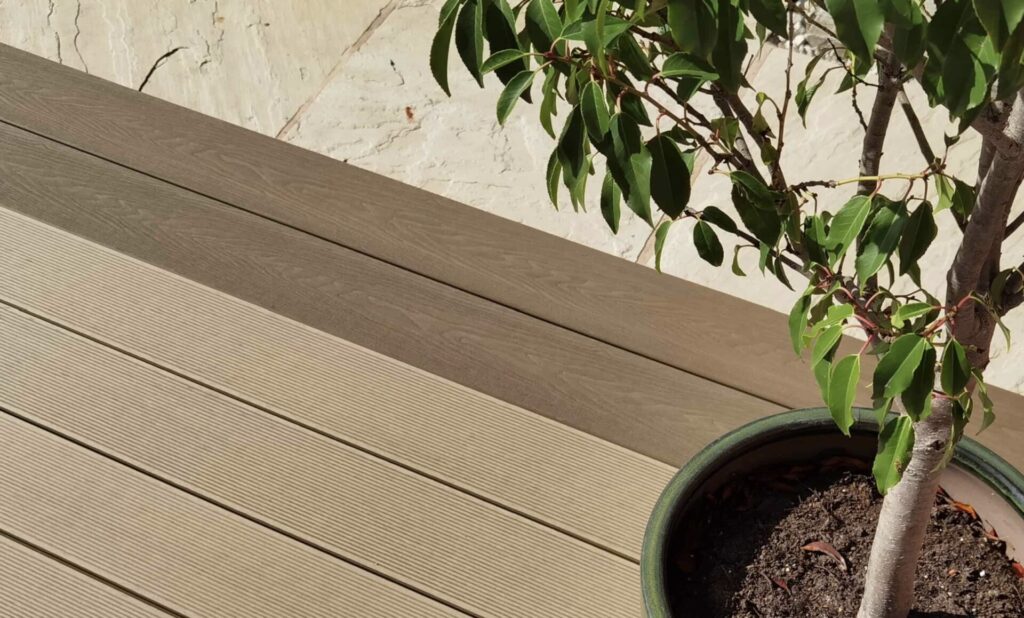
Hardwood Decking
Overview of Hardwood Decking
Hardwood decking stands out as a luxurious and enduring option for outdoor spaces, providing not only a visually stunning addition but also boasts unique grain patterns and rich colors that add character to any environment. Its durability ensures that it can withstand the elements, maintaining its beauty and structural integrity over time. With the ability to complement various architectural styles, hardwood decking becomes a timeless investment, transforming outdoor areas into inviting and sophisticated retreats.
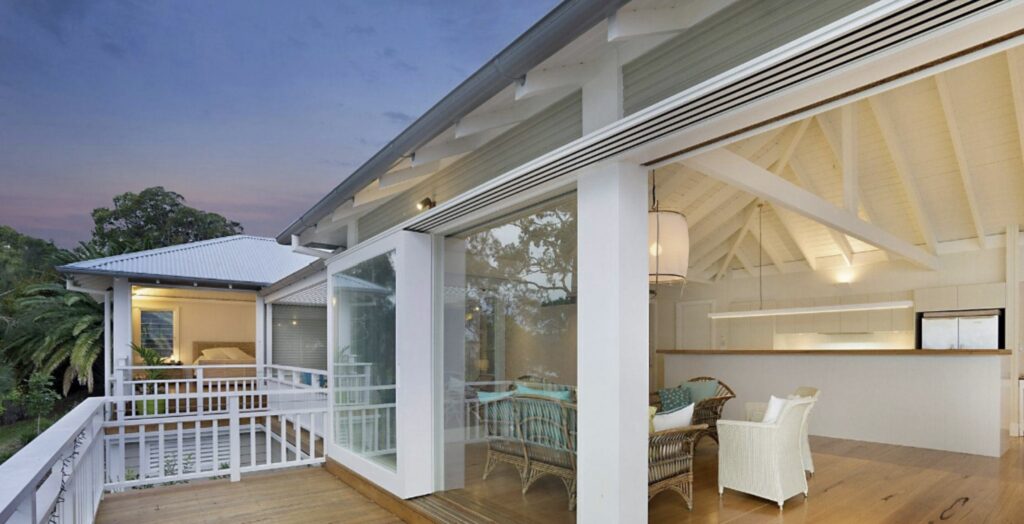
Notable Hardwood Species Used in New Zealand
- Jarrah: An Australian hardwood, Jarrah features a deep red color and impressive durability. It’s an ideal choice for those seeking a bold and robust decking solution.
- Balau: Native to Southeast Asia, Balau offers a blend of warm tones. Its high-density composition makes it resistant to decay and ensures longevity.
- Purple Heart: With its distinctive purple hue, Purple Heart provides a visually striking option. Its hardness and resistance to decay make it suitable for decking in various environments.
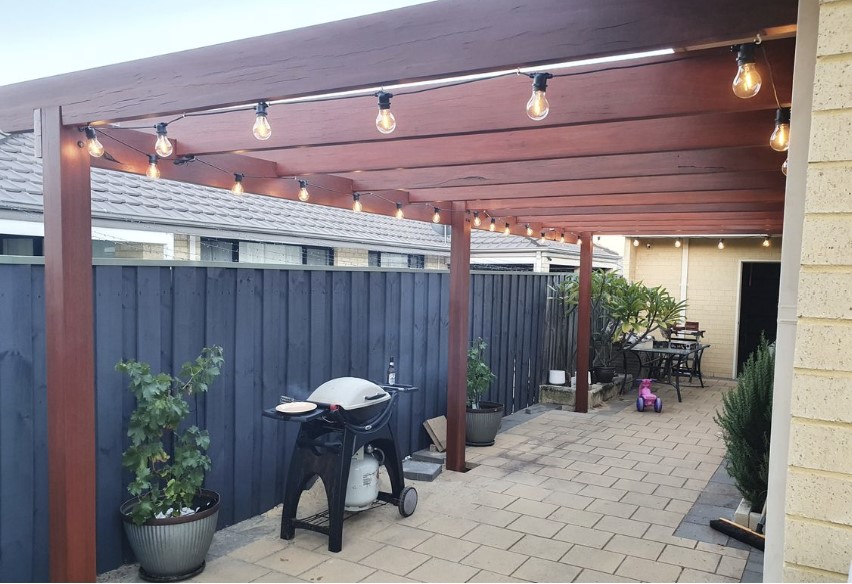
Comparing Hardwood Decking with Other Options
- Resistance to Elements: Hardwood decking excels in resisting the impact of weather elements. It maintains its structural integrity and aesthetic appeal even in challenging conditions.
- Cost Considerations: While hardwood decking may have a higher upfront cost, its durability and longevity can make it a cost-effective choice over the long term.
- Installation Complexity: Professional installation is recommended for hardwood decking due to its density and specific installation requirements. However, the result is a deck that stands the test of time.
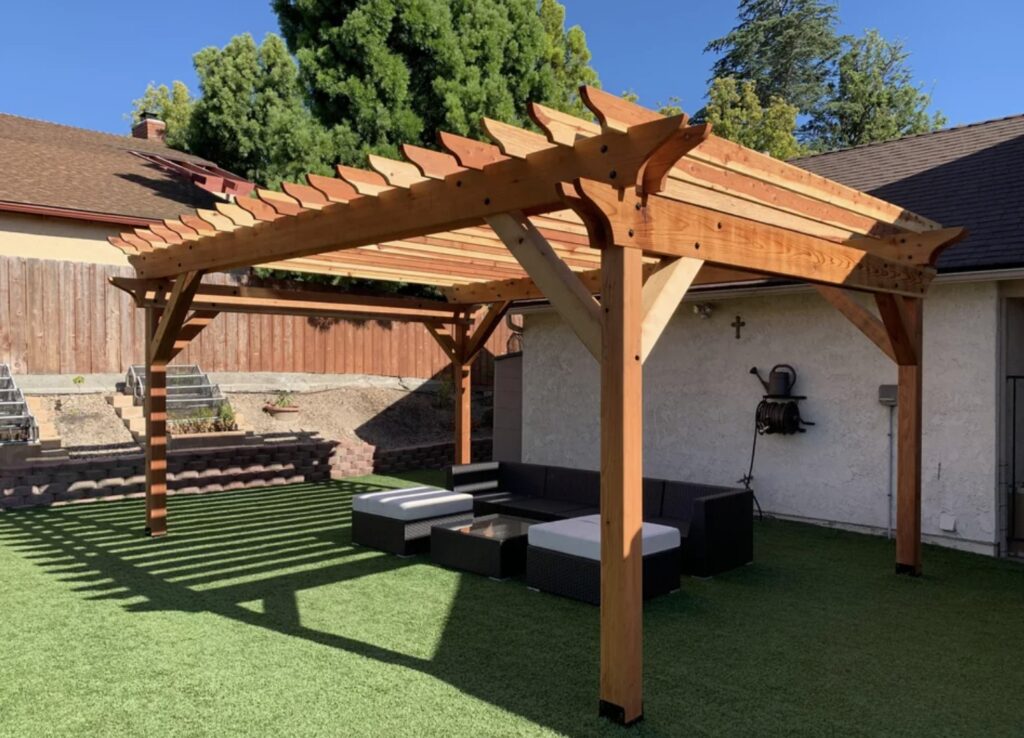
Softwood Decking
Introduction to Softwood Decking
Softwood decking presents an excellent choice for those seeking a cost-effective solution that doesn’t sacrifice aesthetics or durability. Its affordability makes it an attractive option for budget-conscious individuals looking to enhance their outdoor spaces without breaking the bank. Despite its economical nature, softwood decking doesn’t compromise on visual appeal, offering a warm and natural look that complements various architectural styles. Furthermore, the wood’s inherent strength ensures a durable and long-lasting outdoor flooring solution, making it an ideal investment for those seeking both financial savings and a lasting, attractive outdoor living space.
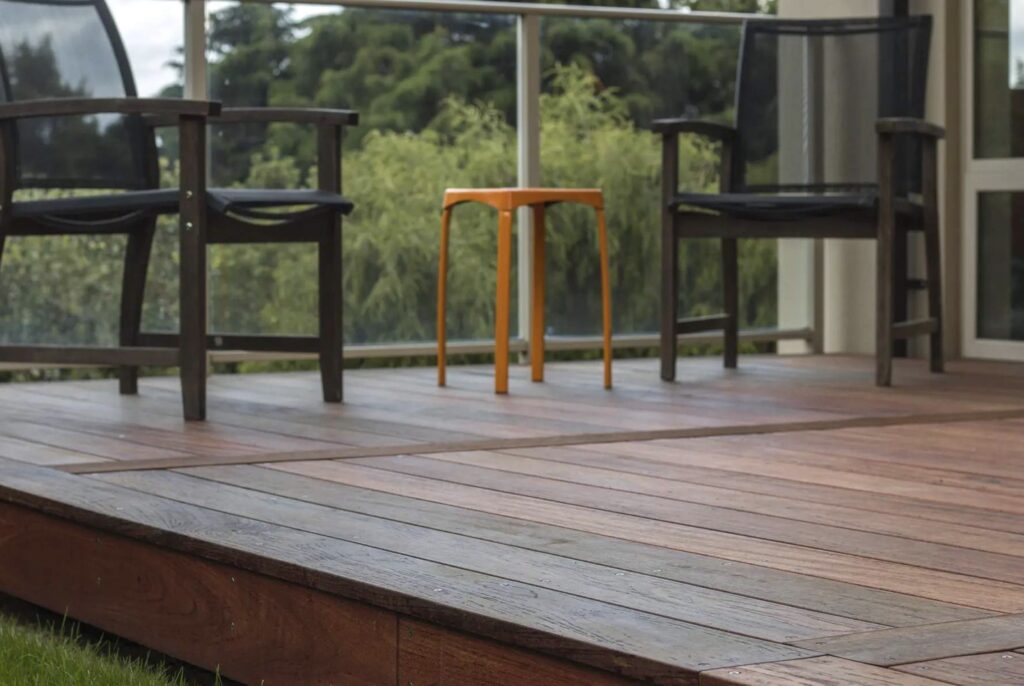
Common Softwood Varieties Used
- Pine: With its light color and affordability, Pine is a popular softwood choice. While it requires more maintenance than hardwood or composite options, regular care ensures its longevity.
- Cedar: Known for its natural resistance to insects and decay, Cedar showcases a warm reddish-brown hue. Its aromatic qualities add a pleasant scent to outdoor spaces.
- Redwood: With its reddish-brown tones, Redwood is naturally resistant to decay. Its combination of beauty and durability makes it a sought-after softwood for decking.
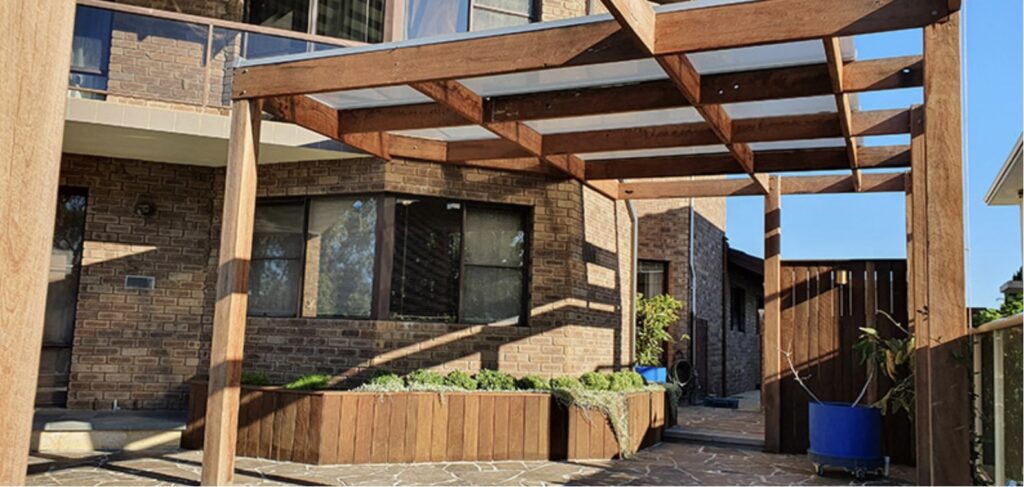
Pros and Cons of Softwood Decking
- Affordability: Softwood decking is often more budget-friendly than hardwood or composite alternatives, making it an accessible option for homeowners.
- Vulnerability to Weather Conditions: Softwood decking may require more frequent maintenance due to its susceptibility to weathering. However, with proper care, it can still provide a durable outdoor surface.
- Aesthetic Characteristics: The natural beauty of softwood adds charm to outdoor spaces. Regular staining or sealing helps maintain its appearance and protects against the elements.
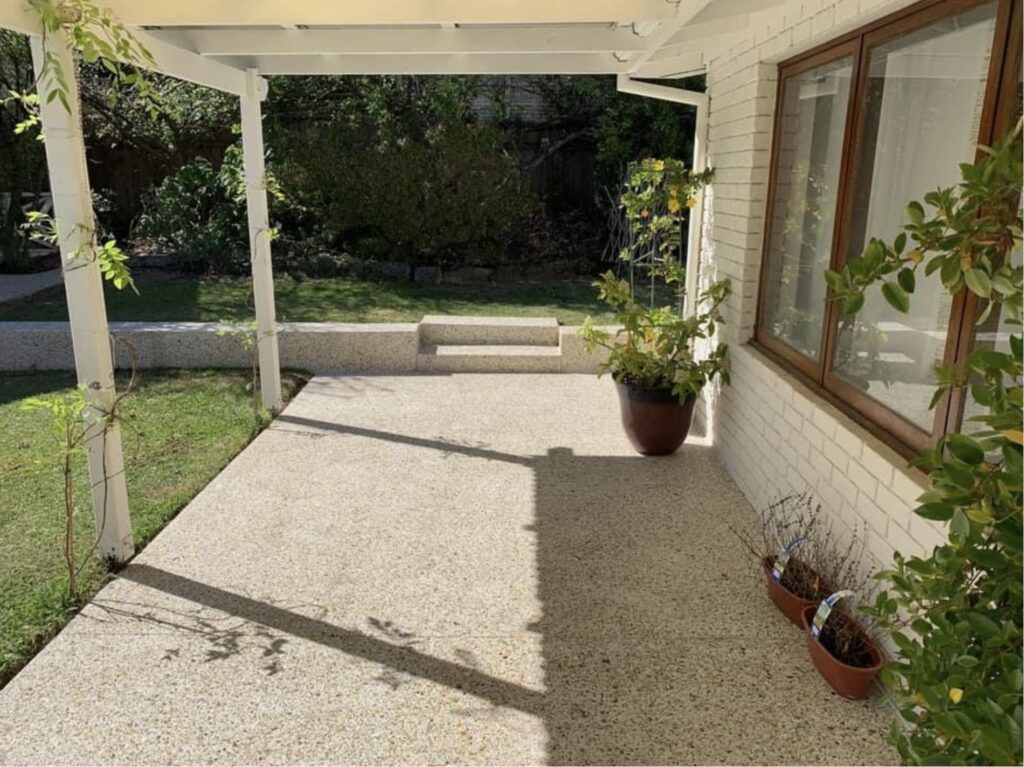
Sustainable Decking Options
In recent years, New Zealand has seen a surge in environmental awareness, driving a notable shift towards sustainable decking options. Homeowners and builders are increasingly choosing eco-friendly materials, reflecting a broader cultural movement towards sustainable lifestyle choices in the country.
- Eco-friendly materials and practices: Explore decking materials that prioritize sustainability, such as recycled composites or FSC-certified timber.
- Certification programs for sustainable decking: Look for certifications like FSC (Forest Stewardship Council) to ensure your decking choice aligns with environmentally responsible practices.
- The growing trend of environmentally conscious decking choices in New Zealand*: Homeowners increasingly prioritize eco-friendly options, contributing to a positive impact on the environment while enjoying a beautiful outdoor space.
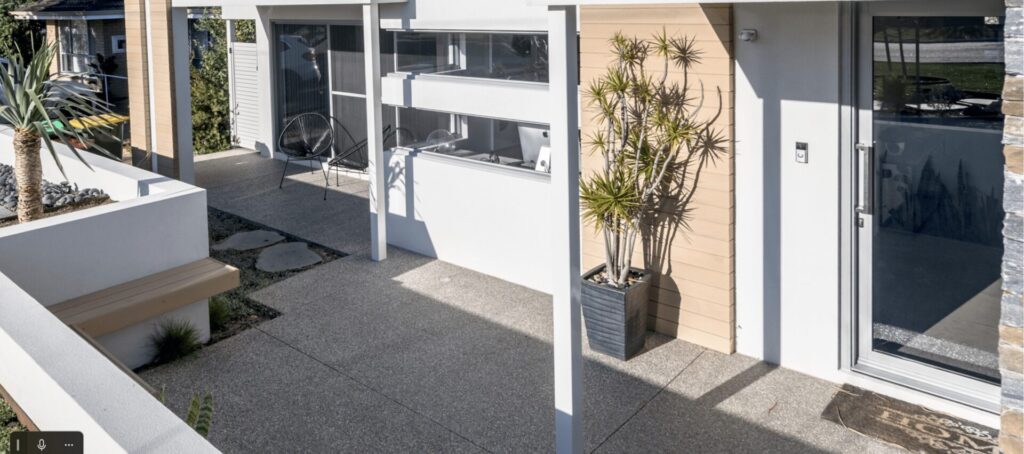
Choosing the Right Decking for Your Location
When choosing the perfect decking material for your outdoor space, it’s crucial to take into account the specific nuances of your local climate and environmental conditions. Understanding the impact of factors such as temperature fluctuations, humidity levels, and exposure to elements will not only ensure the longevity of your deck but also contribute to a sustainable and resilient outdoor living area.
- Consideration of climate and environmental factors*: Evaluate the weather conditions, moisture levels, and sun exposure in your area to choose a decking material that can withstand local challenges.
- Matching decking types with specific regions in New Zealand*: Different regions may have varying climates, influencing the optimal decking choice. Seek guidance to ensure your deck is well-suited to your specific location.
- Importance of professional advice in decision-making*: Consult with decking professionals or contractors who understand the local climate and can recommend suitable materials for your outdoor space.
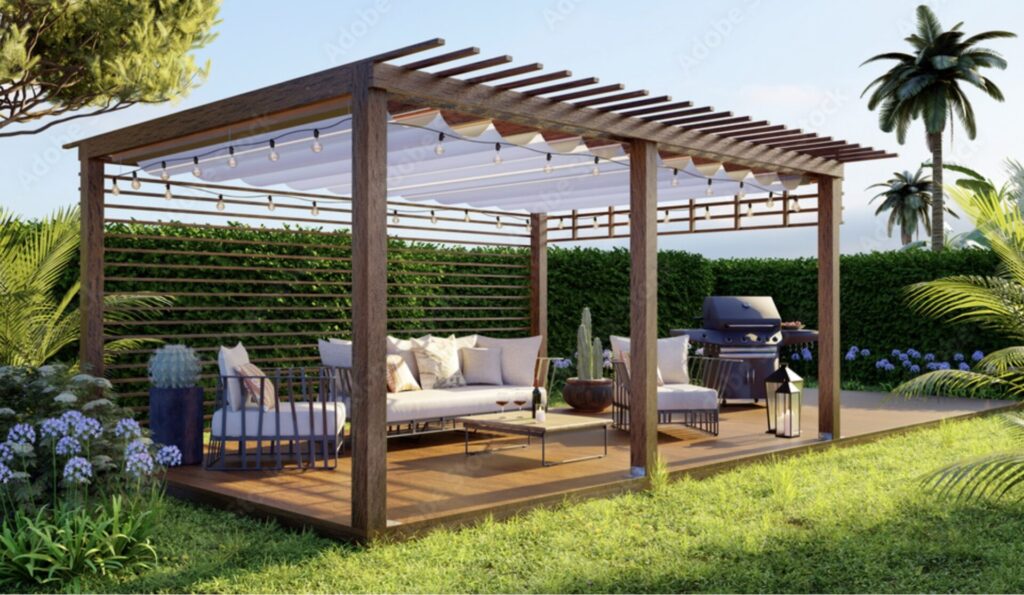
Maintenance Tips for Different Decking Types
To ensure the longevity and enduring beauty of your deck, it is imperative to adhere to meticulous maintenance practices. Regularly inspecting for signs of wear, applying weather-resistant coatings, and promptly addressing any damages will not only enhance its aesthetic appeal but also safeguard its structural integrity against the elements, ensuring a durable and inviting outdoor space for years to come.
- General maintenance practices: Regularly
- sweep and clean your deck to prevent dirt buildup. Trim nearby vegetation and inspect for any loose boards or nails.
- Specific care guidelines for timber, composite, hardwood, and softwood decking*: Follow manufacturer recommendations for cleaning and maintaining your specific decking material to ensure optimal performance and appearance.
- Seasonal considerations for optimal longevity: Adjust your maintenance routine based on seasonal changes. Prepare your deck for winter and perform any necessary touch-ups in the spring to keep it looking its best.
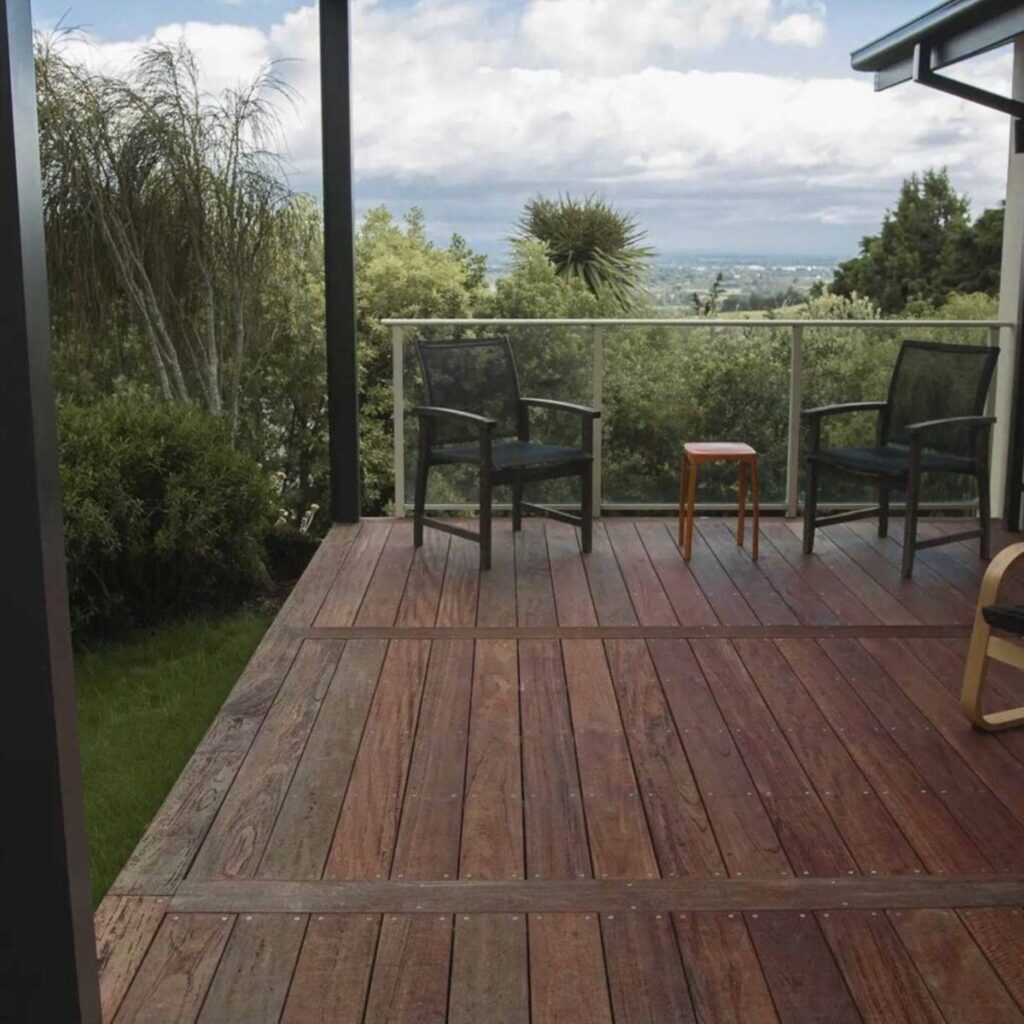
FAQs: A Guide to the Different Types of Decking in New Zealand
What is the primary focus of this guide?
The guide focuses on providing insights and expert advice to help individuals make informed decisions about decking options in New Zealand, considering factors such as materials, aesthetics, and maintenance.
What are some examples of native timber options mentioned in the guide?
Native timber options include Kauri, Totara, and Rimu, each known for unique characteristics like rich golden hues, natural oils, and beautiful grain patterns.
Which imported timber option is highlighted for its resistance to decay and suitability for New Zealand climates?
Kwila, imported from Southeast Asia, is prized for its robust nature, rich reddish-brown color, and resistance to decay, making it suitable for New Zealand climates.
What are the advantages of timber decking discussed in the guide?
Timber decking is praised for its durability, longevity, and aesthetic appeal. The guide also mentions the relatively straightforward maintenance requirements, such as regular cleaning, sealing, and addressing minor repairs.
What is composite decking, and how does it differ from traditional timber decking?
Composite decking is a versatile solution that blends wood fibers with synthetic materials, offering enhanced durability and minimal maintenance compared to traditional timber decking.
Which popular composite decking brands are mentioned for New Zealand homeowners?
Trex, Futurewood, and ModWood are highlighted as popular composite decking brands, each offering unique features such as wood-grain appearance, eco-friendly materials, and visual appeal.
What are the advantages of composite decking discussed in the guide?
Composite decking is praised for its low maintenance, environmentally friendly nature, and enhanced durability, resisting rot, decay, and insect damage.
What makes hardwood decking stand out, and which hardwood species are mentioned for use in New Zealand?
Hardwood decking is highlighted for its luxurious and enduring qualities, with notable species like Jarrah, Balau, and Purple Heart mentioned for their unique characteristics, colors, and durability.
What is the main appeal of softwood decking, and which common softwood varieties are discussed in the guide?
Softwood decking is described as a cost-effective option that doesn’t compromise on aesthetics or durability. Common softwood varieties include Pine, Cedar, and Redwood.
Why is there a growing trend towards sustainable decking options in New Zealand?
The guide attributes the trend towards sustainable decking to a surge in environmental awareness, with homeowners and builders increasingly choosing eco-friendly materials and practices to reduce their environmental impact
Conclusion
In conclusion, the diverse range of decking options in New Zealand caters to different preferences, budgets, and environmental considerations. Whether you opt for the natural warmth of timber, the low-maintenance appeal of composite, the luxurious feel of hardwood, or the budget-friendly softwood, your choice will shape an outdoor space where memories are made. By considering your local climate, sustainability goals, and maintenance preferences, you can confidently select the perfect decking material to complement your lifestyle. Remember, consulting with professionals ensures a well-informed decision and a deck that stands the test of time. Embrace the beauty underfoot, and transform your outdoor living space into a haven of comfort and style.
About the Author:
Mike Veail is a recognized digital marketing expert with over 6 years of experience in helping tradespeople and small businesses thrive online. A former quantity surveyor, Mike combines deep industry knowledge with hands-on expertise in SEO and Google Ads. His marketing strategies are tailored to the specific needs of the trades sector, helping businesses increase visibility and generate more leads through proven, ethical methods.
Mike has successfully partnered with numerous companies, establishing a track record of delivering measurable results. His work has been featured across various platforms that showcase his expertise in lead generation and online marketing for the trades sector.
Learn more about Mike's experience and services at https://theleadguy.online or follow him on social media:

